Family roots run deep in the Texas Hill Country
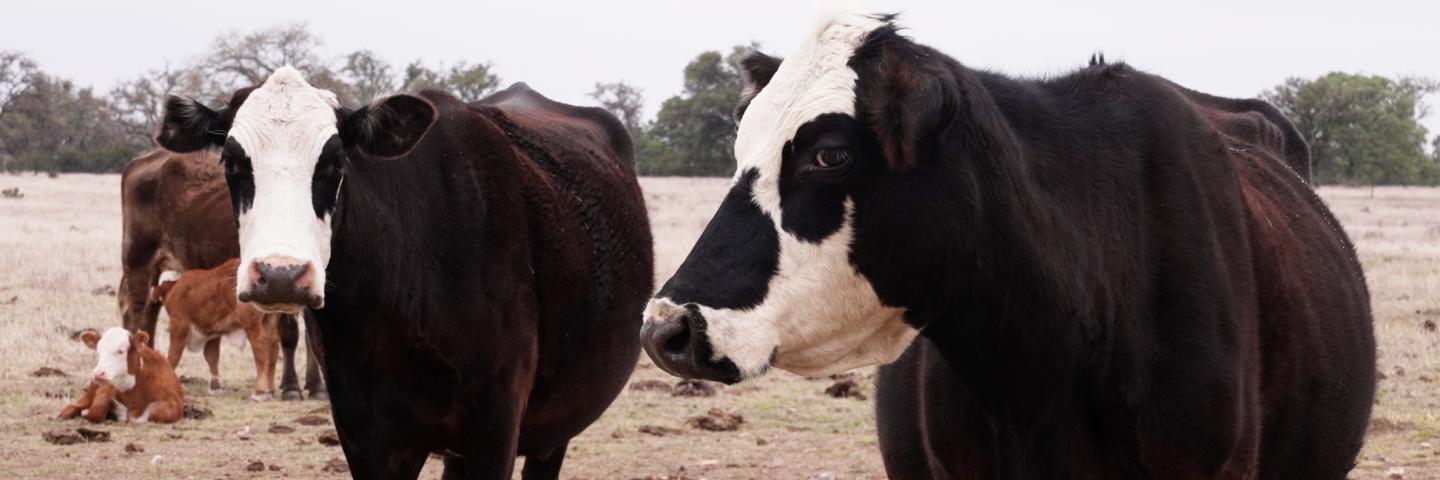
The L Cross Ranch, owned and managed by the Short family, are working to keep their Hill Country property viable. With help from the NRCS Texas and conservation planning, they are realizing goals that benefit not only themselves, but the community as well.
Story and photos compiled by Wade Day, Public Affairs Specialist, San Angelo, Texas
Family roots run deep in the Texas Hill Country (ArcGIS Story Map)
Diversity is a term that comes to mind when describing the Texas Hill Country.
The landforms, plants and animals — some of them found only here — make up a landscape as unique as the people who call it home.
The L Cross Ranch, located near the towns of Vanderpool and Utopia in Bandera County, is no exception.
Today, the property is owned in part by Les Short. Short, along with his wife and siblings, are committed to keeping the land in their family and leaving it better than how they found it.
“My great grandfather, Joseph W. Short, bought the land around 1905 and developed the ranch,” said Short.
At one time, the elder Short was the largest landowner in the county. The land was eventually passed down and split up into parcels by other members of the Short family.
“I’m proud of my great grandfather, and grandfather, and father that they were able to pass it down,” said Short. “I feel a kinship with the property. I want to keep it for the future so it’s a better place to live.”
Just like his grandfather and father, Short is continuing in his family’s tradition of working with the U.S. Department of Agriculture (USDA) Natural Resources Conservation Service (NRCS).
Together, they have more than 30 years of partnership. Through it, they have been able to maintain the land using conservation practices and methods.
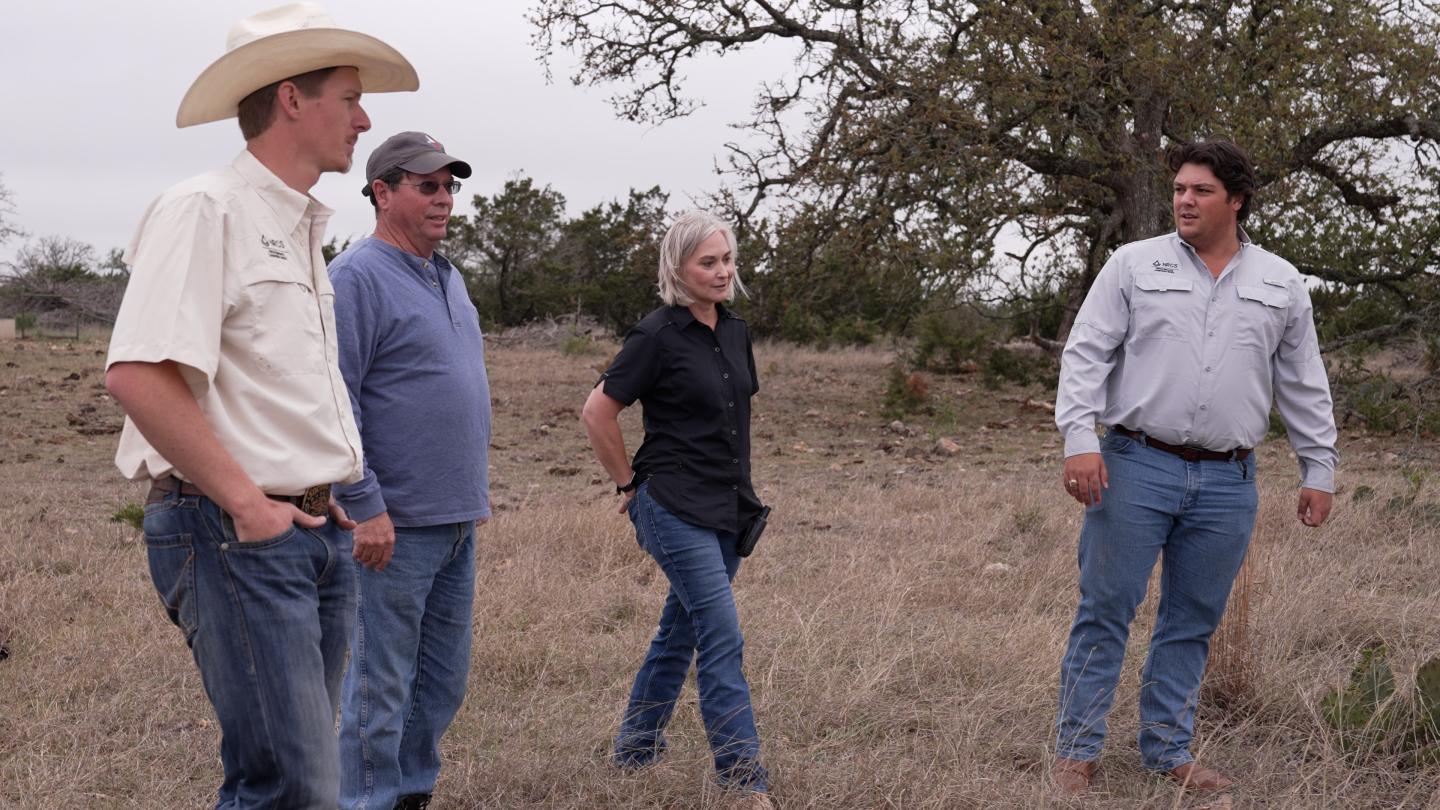
Aboveground Challenges and Solutions
Les currently serves as land manager for the ranch with a focus on overseeing the cattle operation, while his brother oversees wildlife management. They run a goat operation as well.
Short is always on the lookout for ways to maintain the land economically and efficiently. Like many ranchers in Texas, they have also been dealing with drought conditions.
This has prompted continuous rangeland management to ensure there’s enough food and water for the livestock and wildlife who call L Cross Ranch home.
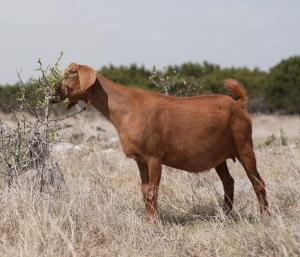
The partnership they have formed with NRCS has provided resources to help them conserve their natural resources. Currently, Short is working with NRCS on livestock water development, brush management, range seeding, fencing and grazing management.
He started by replacing old water systems that required constant maintenance and repair. More efficient, solar-powered water systems were installed that enabled him to open more areas for livestock to graze, while allowing other areas to rest.
The goal was to provide water for livestock and wildlife over the whole property. This allowed the entire property to be utilized rather than concentrating on a few areas.
“Water is necessary for everything,” said Short. “It helps every aspect of a ranch. The more we try to find ways to preserve and to funnel the water is good for everything.”
Cross fencing has also been installed to create pastures and redirect livestock distribution based on a prescribed grazing plan.
Another way Short is working to improve the ranch is by implementing brush management. This process involves dealing with problematic or overabundant brush species, in this case, cedar.
“We’ve done a lot of clearing with the cedar program through NRCS,” said Short.
The process involves mechanically removing and piling the cedar and when conditions allow, burning it. The process is slow, but the results speak for themselves.
“Once it’s burned, it’s a beautiful sight,” said Short. “The grass grows, the water starts flowing, you see more animals around the water. So, it’s been very beneficial for us.”
The conservation practices have made a visible impact on the countryside.
The amount of grass growth and habitat reclamation is a welcome sight. So of course, is the water flowing in the streams and ultimately, recharging the aquifer.
Improvements being made on the L Cross Ranch through NRCS programs are making a difference.
Beneath the Surface
The ranch, like much of the land in Hill Country, is home to underground caves and caverns that feed into the Edwards Aquifer.
The Edwards Aquifer is of particular importance to the area. It is the source of water for a large portion of the Hill Country, including the San Antonio metropolitan area. The function and productivity of this aquifer affects a large population.
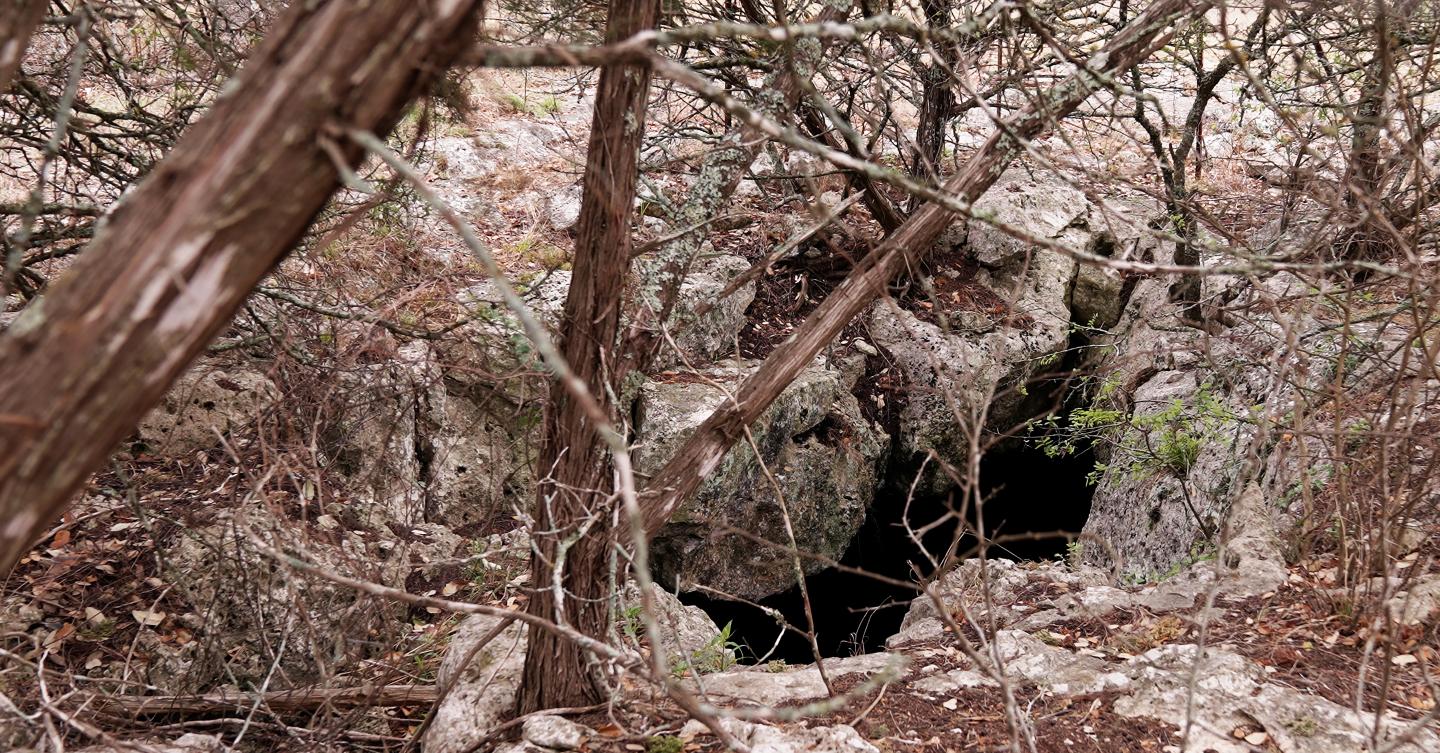
Short knows where most of the caves are on his property, but from time to time, they discover a new opening. He has explored many of these underground caverns, knowing of at least four that can be entered.
The caves are of major importance to the landscape.
They serve as a place for rainwater to collect and funnel it down to the porous aquifer beneath. Through various conservation practices, Short is helping to make sure that every drop of water possible is taken into consideration.
NRCS District Conservationist in Bandera, Rebecca Svoboda, has worked with Short and his family on numerous projects. She understands the importance of the conservation efforts they’ve put in, as well as the importance of their outcomes.
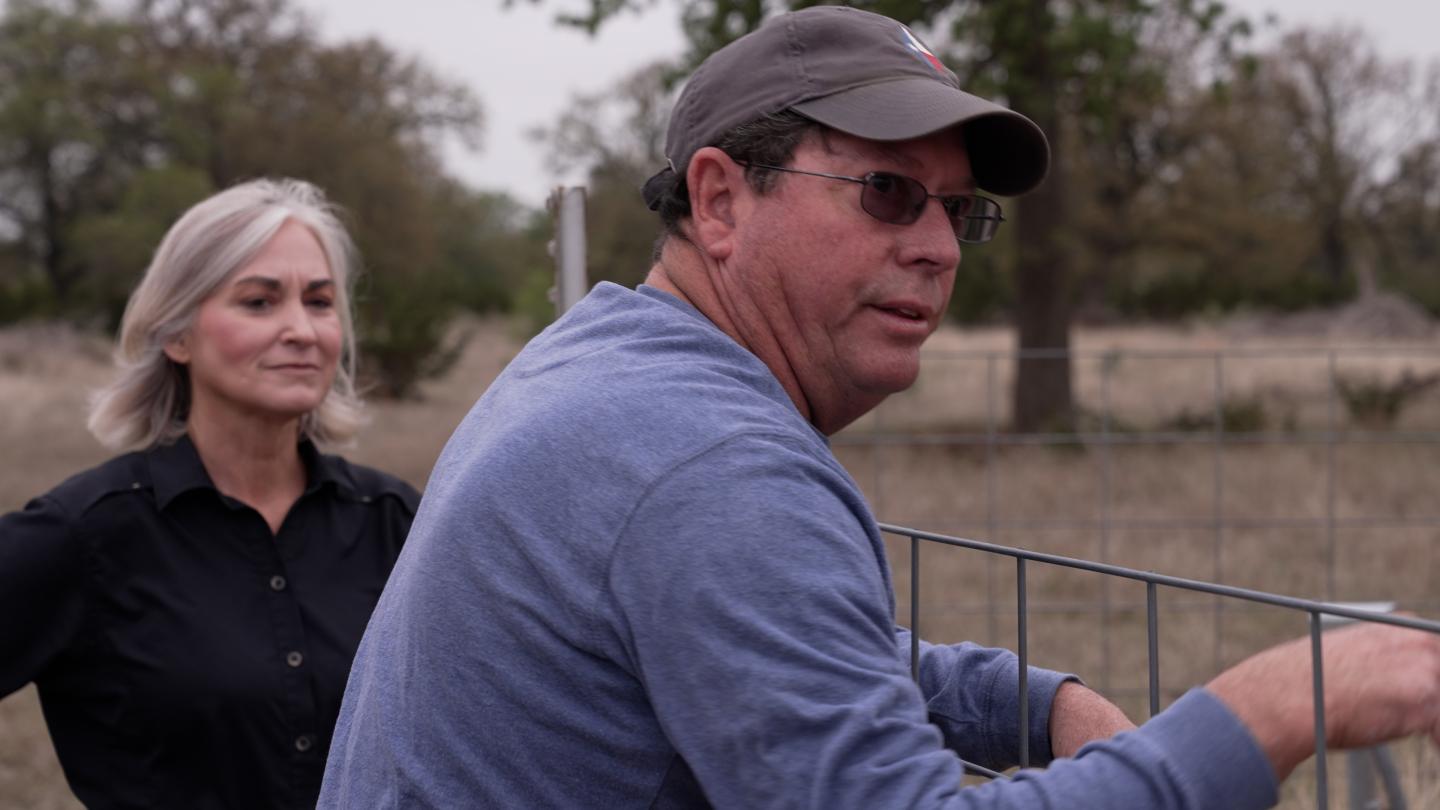
“The impact from these practices don’t just benefit this landowner,” said Svoboda. “The effects from these practices benefit everybody in Utopia, benefits everybody in San Antonio. Every bit of water that is being recovered on the land that’s now open and going back into these aquifers is being utilized by more than just this landowner.”
“We are at the top of the aquifer, so we like to have all the water clean and nice for everybody,” said Short about his family’s conservation efforts. “It’s an intricate system that, when it all works together, is a beautiful thing.”
Staying the Course, Looking Ahead
The future of L Cross Ranch is secure due to the strong bond of the Short family.
“Where a lot of families fight over land to sell it for the money, my family decided to stay together,” said Short.
Short and his family are proud of the ranch and for the opportunity to manage it. Their commitment to keeping the land in the family is also strong.
“My family is what kept this place together,” said Short. “Our partnership. If my brothers and sisters weren’t participating, we couldn’t keep the place. And if we didn’t have their cooperation, we would lose it.”
Short’s willingness to adapt and change has allowed him to preserve and better the land. Svoboda points out that the work they’ve accomplished will feed into improvements they’ll continue into the future.
“Working with Les has been a huge blessing to me,” said Svoboda. “They’ve been out here for generations. They know how this county works. They know how this land works. They know what’s worked in the past and what hasn’t worked.”
Together, with continued assistance from NRCS, Short will continue his labor of love and strive to leave it better for future generations.
“We are the stewards of the land,” he said. “We try to improve the land. We don’t want to pollute the land. We try to make it better through conservation so it’s a better place to live.”

